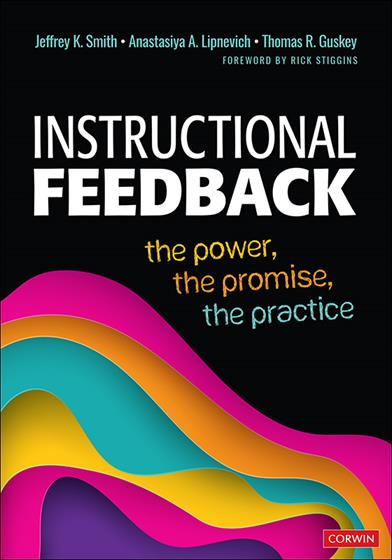Hands-on, Practical Guidance for Educators
From math,
literacy, science, equity, multilingual learners, and SEL, to assessment, school counseling,
and education leadership, our books are research-based and authored by experts
on topics most relevant to what educators are facing today.

Instructional Feedback
Foreword by Rick Stiggins
Engaging and concise, this book covers a broad range of topics pertaining to instructional feedback and offers educators research-based advice.
- Grade Level: PreK-12
- ISBN: 9781544385211
- Published By: Corwin
- Year: 2023
- Page Count: 128
- Publication date: March 15, 2023
Review Copies
Review copies may be requested by individuals planning to purchase 10 or more copies for a team or considering a book for adoption in a higher ed course. Request review copy
Other Titles in: Standards & Accountability | Formative Assessment | Differentiation & Multiple Intelligences



